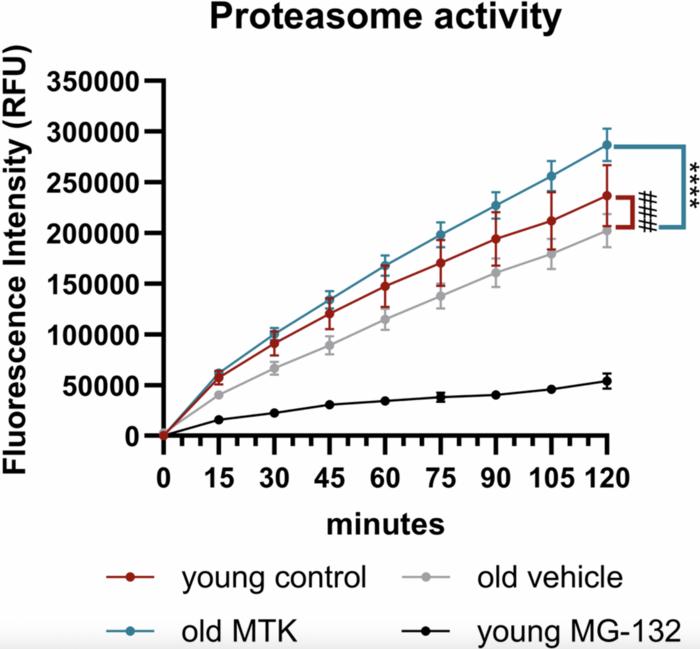
Research has unveiled a potential breakthrough in understanding the relationship between aging and retinal health, providing invaluable insights into combating age-related vision loss. A recent study published in the journal Aging outlines the significance of the Cysteinyl leukotriene receptor 1 (CysLTR1) in modulating both the inflammatory response and the vascular health of retinal tissues in aged mice. The research findings suggest that strategic blockage of the CysLTR1 can significantly enhance retinal health, opening avenues for therapeutic interventions in age-related ocular disorders.
In recent years, the prevalence of vision problems associated with aging has become a significant public health issue, driven largely by the burgeoning aging population across the globe. These issues primarily stem from chronic inflammation, which plays a devastating role in the deterioration of retinal function over time. The retina, a critical structure within the eye responsible for photoreception and visual signal transmission to the brain, becomes increasingly susceptible to damage as individuals age. This study zeroes in on how this deterioration occurs and what therapeutic interventions might be employed to arrest or even reverse the process.
The research, led by Andreas Koller from the University Hospital of the Paracelsus Medical University, specifically targeted the inflammatory marker CysLTR1. This receptor, known for its pro-inflammatory action, exhibits increased expression in the retinas of aging mice. By utilizing montelukast (MTK), a well-established medication used in asthma treatment that selectively inhibits CysLTR1, researchers set out to investigate whether blocking this receptor could alleviate some negative consequences associated with aging in the retina.
A robust methodology was implemented in the study, where aged mice were subjected to an eight-week treatment regimen involving oral administration of MTK. Their responses were then measured against a control group consisting of untreated aged mice as well as a healthy youthful cohort. This design enabled researchers to highlight the stark contrast in retinal health across different age groups and treatment protocols. The results were striking, demonstrating significant recovery in various aspects of retinal functionality following MTK treatment.
One notable outcome from the experimentation was a marked reduction in microglia, the immune cells typically elevated in the aging retina. The excessive presence of microglia is often associated with chronic neuroinflammation, a substantial risk factor for age-related macular degeneration and other retinal complications. With the application of MTK, the reduction of these immune cells indicated a dynamic shift toward lowered inflammation within the retinal environment, thereby showcasing a significant therapeutic potential in mitigating inflammation-driven ocular degeneration.
In addition to inflammatory response amelioration, the findings revealed a crucial improvement in retinal vascular integrity. Aging mice typically exhibit atrophy in the small blood vessels of their retinas, leading to diminished blood flow and consequent hypoxia, significantly impairing retinal function. After MTK treatment, significant enhancement in vessel diameter was observed, suggesting a restoration of normal blood circulation and potentially improved oxygenation and nutrient delivery to retinal tissues. This vascular rehabilitative effect underscores the multifaceted utility of targeting inflammation pathways in age-related retinal pathology.
Additionally, the study highlighted improvements in the retina’s proteolytic capacity, referring to the efficacy of cellular mechanisms in degrading and clearing out waste proteins. Aging is often characterized by the accumulation of misfolded or damaged proteins within retinal cells, severely compromising their functionality. The proteasome—an intracellular complex responsible for protein degradation—showed enhanced activity post-MTK treatment, revealing a promising avenue for rejuvenating cellular clearance mechanisms that degrade pro-inflammatory or deleterious proteins.
Notably, throughout the entire course of treatment, no adverse effects were registered on retinal nerve cells, an outcome critical for establishing the safety and efficacy of such therapeutic intervention for aging-related eye disorders. This finding brings forth an essential consideration in the pursuit of effective treatments for age-related vision decline, particularly because any therapeutic approach must prioritize the preservation of neuroretinal integrity to be viable.
Though the research denotes a pivotal step forward, the authors rightly highlight the need for further exploration of this interaction in human subjects. The pathway for translating this research into clinical application appears feasible, especially given that MTK is already an FDA-approved medication. This presents a unique advantage, as it could swiftly pave the way for clinical trials aimed at addressing prevalent age-related visual impairments, including macular degeneration and diabetic retinopathy.
The broader implications of this research extend beyond retinal health, highlighting an engaging narrative about the intersection of inflammation and aging across various biological systems. By targeting inflammatory pathways strategically, there lies the potential to mitigate not just vision-related issues but also broader age-related health concerns in an increasingly aging population.
In conclusion, the findings from Koller and his team’s research cast a hopeful light on the challenges posed by aging in retinal health, suggesting that repurposing existing medications might yield significant benefits. This study not only opens the door for new therapeutic pipelines but also emphasizes the critical role of inflammation in the context of aging. As research continues to unfold, with potential human trials on the horizon, we may soon find ourselves equipped with effective strategies to preserve visual function and enhance quality of life for the aging populace.
Subject of Research: Animals
Article Title: Cysteinyl leukotriene receptor 1 modulates retinal immune cells, vascularity and proteolytic activity in aged mice
News Publication Date: 31-Jan-2025
Web References: Aging
References:
Image Credits: Copyright © 2025 Koller et al.
Tags: age-related ocular health researchage-related vision lossaging murine modelsAndreas Koller University Hospitalchronic inflammation and retinaCysteinyl leukotriene receptor 1inflammation and retinal functionMontelukast retinal healthphotoreception and visual signal transmissionpublic health issues vision problemstherapeutic interventions for ocular disordersvascular health in aging retina





